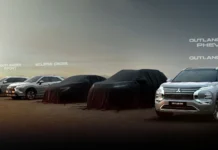Nissan and Infiniti are recalling nearly 450,000 vehicles due to potential engine failure.
Since the 2019 model year, Nissan and its Infiniti luxury brand have been integrating the variable-compression turbocharged engine (or VC-Turbo) into its wider lineup. The new technology, which adjusts the engine’s compression ration on the fly for better power or efficiency depending on the conditions, was one the company touted as a game-changing innovation. Essentially, you get two engines in one, at least on paper. The VC-Turbo first rolled out to the Infiniti QX50, then went on to other lineups including the popular Nissan Altima and Rogue. And now, per documents filed with the National Highway Traffic Safety Administration (NHTSA), the automaker is recalling nearly half a million vehicles because those engines might fail.
Specifically, the recall campaign (NHTSA number 25V-437) affects 443,899 vehicles built between the 2019 and 2024 model years. It impacts both the original, larger displacement KR20DDET 2.0-liter VC-Turbo four-cylinder, as well as the smaller KR15DDT 1.5-liter three-cylinder that made its way into the Nissan Rogue.
The problem, Nissan says, is bearing failures in certain vehicles due to a manufacturing defect. Over time, metal debris from the suspect (main, A-, C- or L-link) bearings can get into the oil, cause engine damage or, if the problem has been going on long enough, catastrophic failure. If the engine fails while driving, the resulting loss of motive power will obviously increase the risk of a crash.
Unsurprisingly, being the most popular vehicle in the recall population, the Nissan Rogue is most impacted by this campaign. That said, here’s a more comprehensive look at the affected vehicles:
- 2021 – 2024 Nissan Rogue: 348,554 units built between March 12, 2021 and August 1, 2024
- 2019 – 2022 Infiniti QX50: 84,536 units built between October 16, 2017 and January 10, 2022
- 2019 – 2020 Nissan Altima: 5,685 units built between May 25, 2018 and December 11, 2019
- 2022 Infiniti QX55: 5,124 units built between February 10, 2021 and January 10, 2022
Nissan estimates 1.2% of all vehicles in the recall population have a potentially catastrophic defect. Nevertheless, it’s recalling these 440,000-plus vehicles to at least be inspected, and determine if they need more extensive repairs.
What’s the fix?
Nissan is not issuing a “Do Not Drive” warning for these vehicles, as it contends bearing failures “are not typically instantaneous”. Drivers will likely get some form of audible clue if the engine is running rough, or they may get warning messages in the instrument cluster before the engine actually fails.
For 2.0-liter VC-Turbo owners, the repair process is a bit more straightforward. Technicians will inspect the engine oil pan, and if they do not see specific metal debris from the bearings, they will perform a free oil change (that should take about an hour to complete).
If you have the 1.5-liter engine, on the other hand, dealers will do a bit more even if they don’t detect any debris. Nissan says, in the event there’s no debris to worry about, technicians will replace the oil pan gasket, change the oil and reprogram the vehicle’s Engine Control Module (ECM), free of charge.
In the case service technicians find debris in either VC-Turbo engine included in this recall, Nissan’s Powertrain Call Center will instruct dealers to replace the entire engine after confirming the issue. That will also be performed free of charge and should take around 15 hours to complete, though that’s also contingent upon dealers having enough new VC-Turbo engines to go around.
Nissan tells the NHTSA it will notify dealers on July 15, then notify affected owners on August 15. That said, the owner community is already keenly aware of the problem, with some urging folks to stay away and go for one of Nissan’s tried-and-true engines.
The NHTSA has also been investigating the problem since December 13, 2023, after no fewer than half a dozen customer complaints alleged engine knock, metal chunks and shavings in the oil pans of impacted vehicles, engine failures and loss of motive power. This official recall doesn’t reach quite as far as the initial investigation, though it comes close to the early 454,840-vehicle estimate.
In fact, one happy coincidence (at least in hindsight) is that Nissan only offered the VC-Turbo engine on the SR trim for the Altima — and it dropped that option from the menu for the 2025 model year. So, most of those cars are rocking the naturally aspirated PR25DD 2.5-liter four-cylinder engine, and as such aren’t impacted by this recall. The 2021 Nissan Rogue also uses the 2.5-liter engine.























